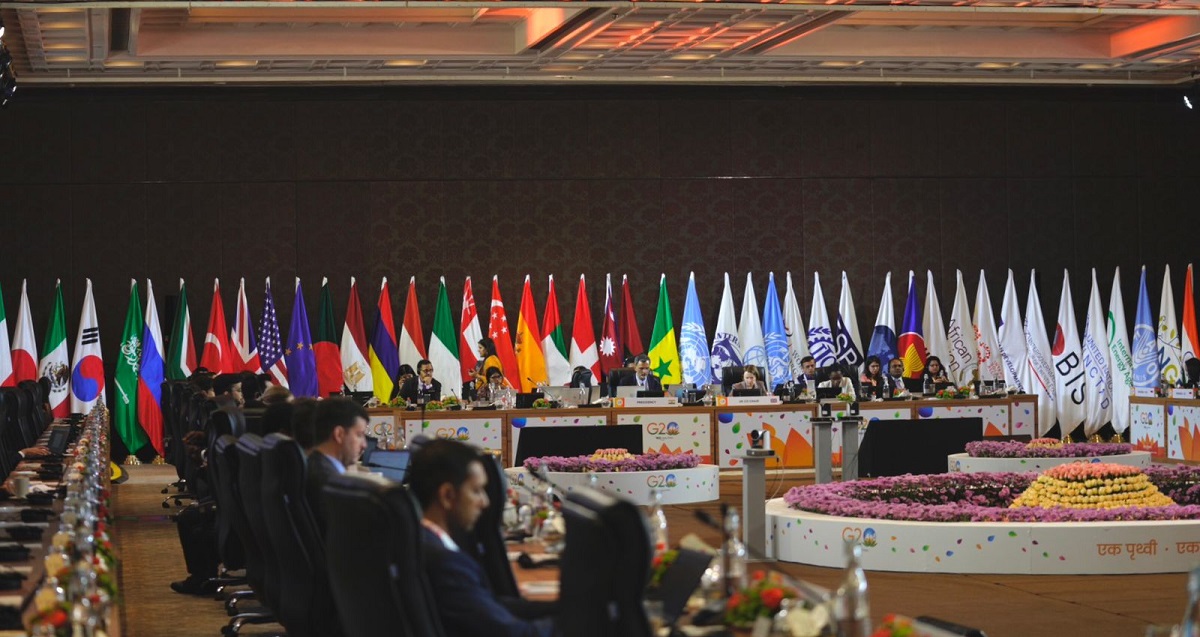
Tamil Nadu: The second G20 Framework Working Group (FWG) meeting under India’s G20 Presidency concluded in Chennai on March 25. During the meeting, delegates discussed and agreed on the way forward for important deliverables, including those on macroeconomic consequences of food and energy insecurity and climate changes as well as transition pathways, G20 said in the press release.
The two-day meeting was co-chaired by V Anantha Nageswaran, Chief Economic Adviser, Ministry of Finance and Clare Lombardelli, Chief Economic Adviser, UK Treasury. Around 87 delegates from G20 member countries, invitees, and international organizations attended the meeting. G20 delegates also discussed the impact of climate change as part of a side event in Chennai. The Framework Working Group focuses on global macroeconomic issues and deliberates on how policy cooperation can be enhanced to achieve strong, sustainable, balanced, and inclusive growth (SSBIG), according to the G20 press release.
Sharing details regarding the meeting the official account of India’s G20 Presidency tweeted, ‘As part of the 2nd #FWG Meet, delegates discussed and agreed on the way forward for important deliverables, including those on macroeconomic consequences of food & energy insecurity and climate changes & transition pathways’. During the meeting held in Chennai, several international organizations, including the World Bank Group (WBG), International Monetary Fund (IMF), Food and Agriculture Organization (FAO), International Energy Agency (IEA), Network for Greening the Financial System (NGFS) and Organisation for Economic Co-operation and Development (OECD) made detailed technical presentations on these issues to inform the FWG outcomes.
The discussion on the global economic outlook and risks emphasised the need to continue efforts to manage global inflation and remain vigilant to emerging financial risks. G20 delegates deliberated on how food and energy prices remain elevated in many nations, disproportionately impacting vulnerable countries. The discussions in the meeting also highlighted the difficult trade-offs countries face as they balance short-term energy security with long-term structural reforms for the transition to cleaner energy, according to the press release. Ensuring the availability and accessibility of critical minerals to facilitate a smoother transition as well as generating domestic savings to address investment needs and boost economic growth for the transition were also discussed during the meeting.
On the sidelines of the FWG meeting, a panel discussion on the ‘Macroeconomic Impacts of Climate Change and Transition pathways’ was also organised in collaboration with UAE which will hold the Presidency of COP28. The session aimed to develop a collective understanding of the challenges facing countries during the climate transition and initiate a discussion on the macroeconomics around climate policy action and transition pathways. An outreach program with IIT Chennai and Madras School of Economics was also held in the run-up to the meeting. The Chief Economic Adviser interacted with students and researchers on India and the world economy, mainly focusing on India’s 2023 G20 Presidency.
In order to make the dignitaries experience the rich cultural heritage of Tamil Nadu and the diverse cuisine, the delegates were hosted for ‘Ratri Bhoj Par Samvad’ (Conversation over Dinner). The delegates also had the opportunity to experience the rich cultural heritage of Tamil Nadu during an excursion to a few landmark places in Chennai, according to the press release. Reserve Bank of India also conducted a host of ‘Jan Bhagidari Events’. These included a financial literacy program in which several farmer-producer organizations, farmers, and self-help groups participated, followed by an awareness program targeted at students, events for promoting digital financial inclusion among street vendors and enhancing inclusive finance by building awareness among the MSMEs entrepreneurs and exporters.

Post Your Comments